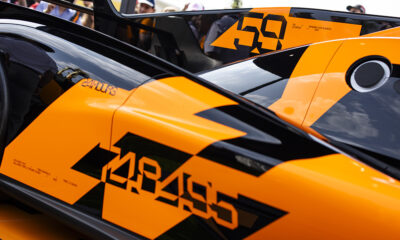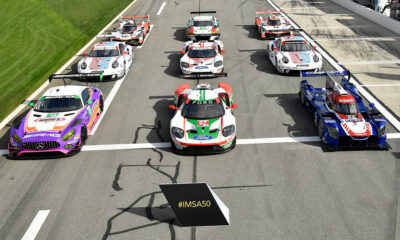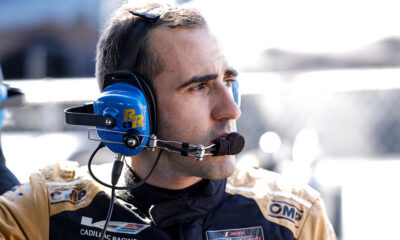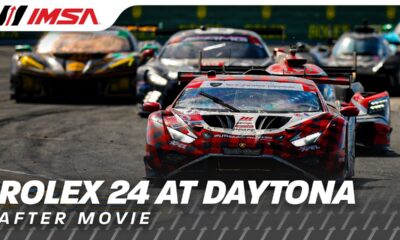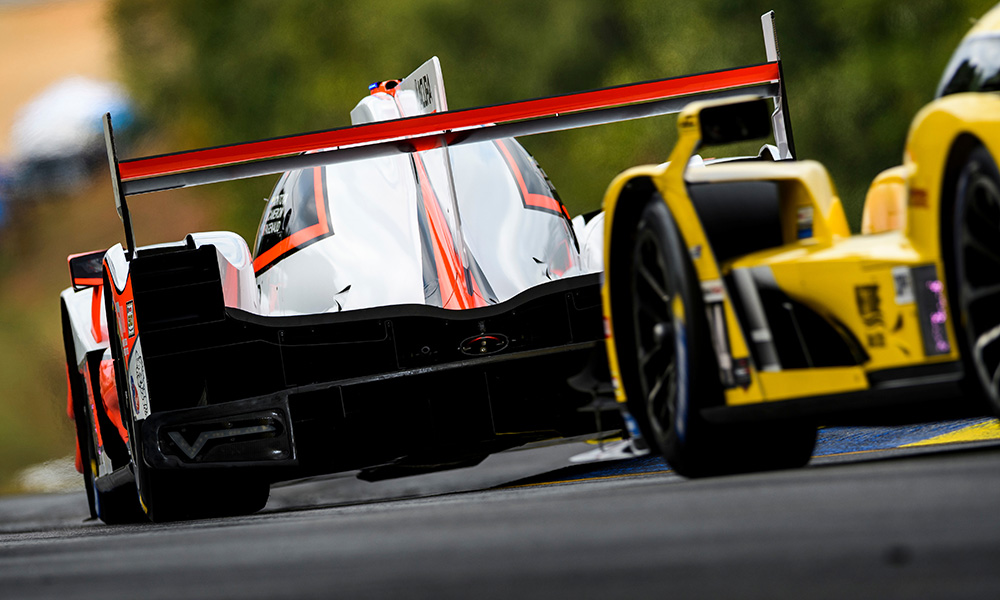
Photo: Peter Burke/IMSA
The ACO hasn’t given hopes of a possible unified prototype platform with IMSA, with talks on the potential integration of DPi 2022 into the FIA World Endurance Championship having continued.
This comes despite the FIA’s recent confirmation of the Hypercar regulations, which will comprise of prototype-based hypercars and road-going hypercars competing in the yet-to-be-named category in the 2020-21 FIA World Endurance Championship season.
Sportscar365 has learned that multiple manufacturers have continued to place pressure on the FIA and ACO for the adoption of IMSA’s new-for-2022 platform, amid only two manufacturers so far committed to Hypercar.
While European reports have indicated that discussions have recently intensified, WEC CEO Gerard Neveu downplayed that anything has changed in recent months.
“Is it correct that there’s still discussions? The discussion has never stopped,” Neveu told Sportscar365.
“Yes, some people got confused by the publication of the regulations by the FIA but it hasn’t changed anything.
“There’s still discussions between the two structures and we sincerely hope to see when the DPi 2.0 will arrive in 2022, to have the possibility to put them racing together and to propose a common platform.
“What I’ve said in July hasn’t changed.”
Neveu was in attendance at last weekend’s Motul Petit Le Mans for the first time since 2011, although the Frenchman said he was not there for meetings specific to potential DPi 2022 integration, but to instead pay tribute to longtime IMSA President Scott Atherton, who is retiring at the end of the year.
Manufacturers Support Global DPi 2022 Platform
Representatives from BMW, Ford, GM and Porsche have all largely supported such a move that would enable the same cars to compete for overall wins at the 24 Hours of Le Mans, Rolex 24 at Daytona and Mobil 1 Twelve Hours of Sebring.
Ford is understood to be one of the leading protagonists, with a commitment to DPi 2022 believed to be contingent on the platform also being eligible at Le Mans.
“To me, what’s always been our principles, that is very important to us,” Ford Performance motorsports global director Mark Rushbrook told Sportscar365.
“If you look at what the Hypercar rules are and what DPi is, there’s the potential to create some compatibility there to be able to compete against each other.
“But it takes a focused technical effort to make that happen.”
Porsche, which exited Hypercar and DPi 2022 discussions in July, is understood to be in a position to reconsider an entry should a global platform be established.
The German manufacturer had proposed a common powertrain between its possible DPi and Hypercar projects earlier this year, although those discussions are understood to have been put on hold.
“At the end, I think a global platform where you can develop one car for two championships is always more cost-effective,” Porsche director of factory motorsports Pascal Zurlinden told Sportscar365.
GM racing director Mark Kent, meanwhile, hasn’t hidden his desire to see Cadillac returning to Le Mans in a potential top-class situation.
“If we had the opportunity to go global and run the Cadillac DPi at the 24 Hours of Le Mans, we would really welcome that opportunity,” Kent told Sportscar365.
Sportscar365 understands that Lamborghini and McLaren are among other manufacturers that could be in a position to commit to the platform should DPi 2022 be extended globally.
“I think it’s a decision, at the end of the day, that the ACO has to take,” BMW Motorsport director Jens Marquardt told Sportscar365.
“My personal opinion, just in general, is that it’s always stronger the more you are aligned and the more application of certain regulations you have.
“To strengthen the whole thing by having this whole co-operation intensified again, because it’s not very intense at the moment, can only help the ACO.”
IMSA is expected to finalize its set of regulations by the end of the year, with it likely to be presented during January’s season-opening Rolex 24 at Daytona.
Daniel Lloyd contributed to this report




















